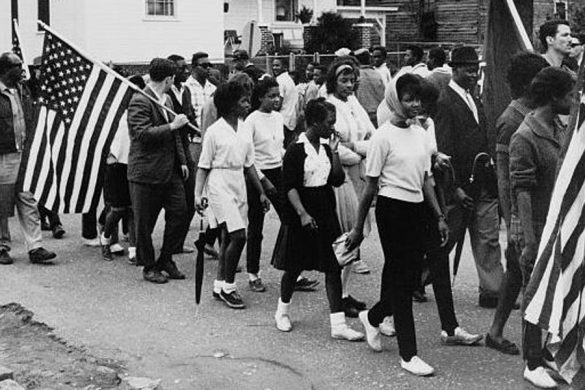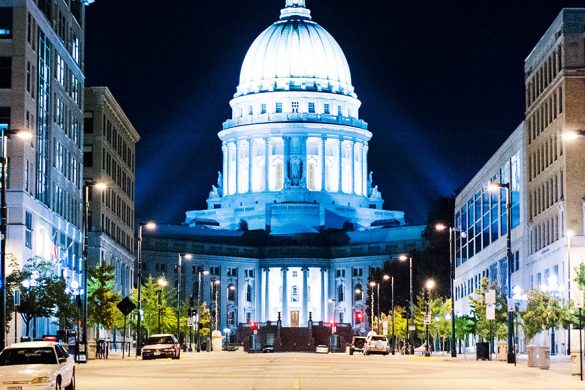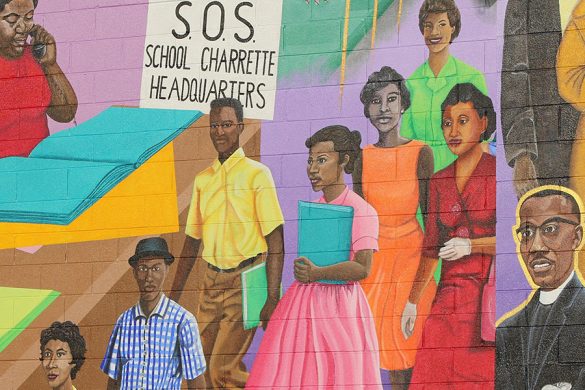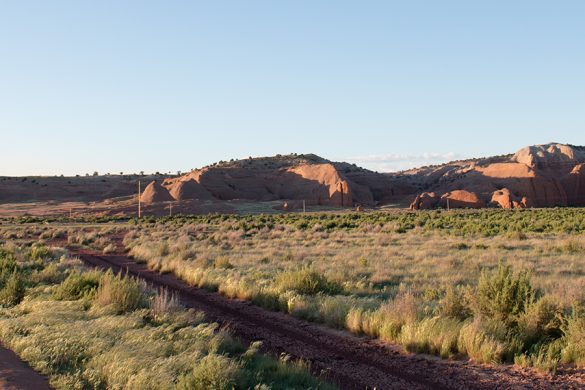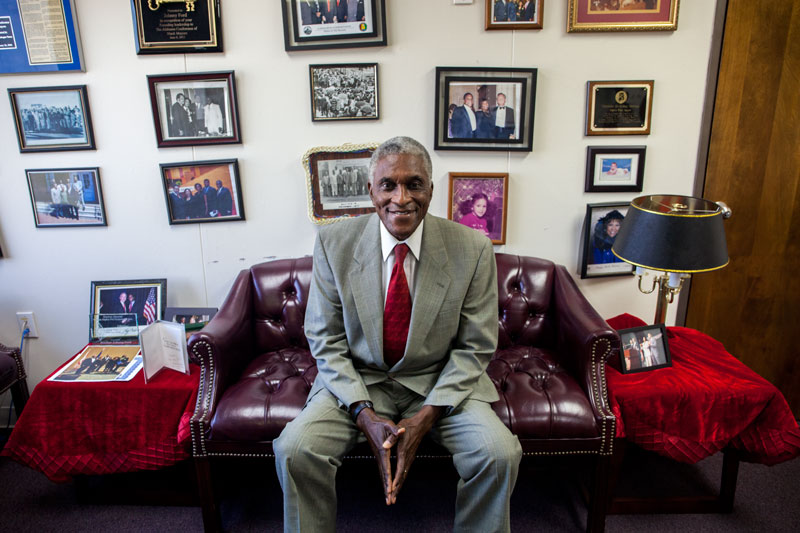
Tuskegee Mayor Johnny Ford sits in his office, which has a mix of professional and personal mementos. (Photo by Jeffrey Pierre/News21)
TUSKEGEE, Ala. – Johnny Ford is the first black mayor of Tuskegee, a sleepy town of about 9,000 people in southeast Alabama.
It’s the birthplace of Rosa Parks and home of Booker T. Washington’s historically black Tuskegee University.
Ford got his start in politics working for U.S. Sen. Robert Kennedy’s presidential campaign, and he later worked for the U.S. Department of Justice Community Relations Service.
In 1972, Ford ran for mayor of Tuskegee. Despite the fact that the town was about 80 percent black at the time, Ford faced significant challenges.
“The whites had specifically placed all the voter registration days during the summertime while the students were away,” Ford said. “Why? Four thousand students, small town, they could elect anyone.”
Researchers pointed out the significance: Tuskegee occupied “an unusual place” in history because it was essentially a college town, which meant the faculty and students made up one of the largest groups of “professional and middle-class blacks in the South” at the time, according to encyclopedia.com.
But Ford had a solution. Several groups of students hadn’t gone home for the summer – the band, cheerleaders and the football team. Ford and a fraternity brother he’d gone to college with rented a bus and drove students to register to vote.
“When those conservative white registrars saw those big 250-pound football players coming off the bus, it scared them to death,” Ford said. “Seriously, they locked the doors and would not register them because … it was almost closing time.”
The next morning, Ford filed a federal lawsuit claiming the workers violated the Voting Rights Act by not registering the students. He said Judge William Varner – who he knew – heard the case.
“His house is up at the end of the street, where my mother worked as a domestic person when I was growing up,” Ford said. “And I was the yard boy.”
Ford said Varner ordered the officials to register the students to vote. Ford drove them back to the board of registrars and registered about 150 students.
On Election Day, Ford won by 127 votes.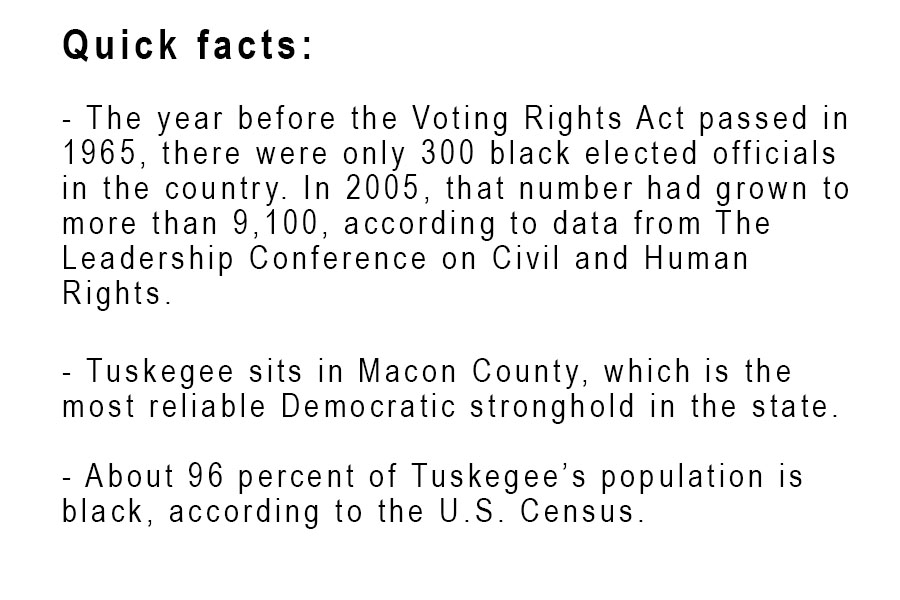
“I became the mascot for the football team,” Ford laughed.
Now in his eighth nonconsecutive term as mayor, Ford criticized Alabama’s voter ID law. The law, which took effect in 2014, requires voters to show a photo ID to cast a ballot.
The Brennan Center estimated that more than one in 10 voting-age citizens don’t have a government-issued photo ID, but African-Americans have a much higher rate: 25 percent don’t have them.
Ford also criticized the state’s department of motor vehicle service cuts. In September 2015, Gov. Robert Bentley announced the closure of 31 driver’s license offices throughout the state. Three weeks later, he announced the offices would remain open, but only one day a month.
Ford said he’s disappointed in Bentley, who worked with Ford while they were state legislators. Ford said he believes the policies have racial motives.
“That whole effort was designed to discourage and make it more difficult for African-Americans to get registered to vote in the state of Alabama,” Ford said.
Macon County is one of the counties with only one DMV open once a month.
“We fight (for voting rights) every day,” Ford said. “Every day. And we will not stop.”
“I will die first before I let the governor, the attorney general or anyone else violate my voting rights.”
Come back Aug. 20 to see the full News21 report on “Voting Wars.”

